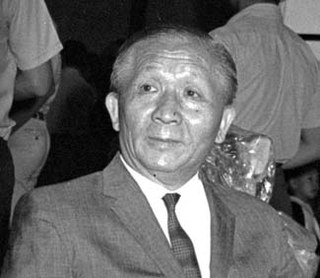A Quote by Niccolo Machiavelli
A son can bear with equanimity the loss of his father, but the loss of his inheritance may drive him to despair.
Related Quotes
There are two reasons why man loses contact with the regulating center of his soul. One of them is that some single instinctive drive or emotional image can carry him into a one-sidedness that makes him lose his balance...his one-sidedness and consequent loss of balance are much dreaded by primitives, who call it 'loss of soul.' Another threat...circles around particular complexes
When the father dies, he writes, the son becomes his own father and his own son. He looks at is son and sees himself in the face of the boy. He imagines what the boy sees when he looks at him and finds himself becoming his own father. Inexplicably, he is moved by this. It is not just the sight of the boy that moves him, not even the thought of standing inside his father, but what he sees in the boy of his own vanished past. It is a nostalgia for his own life that he feels, perhaps, a memory of his own boyhood as a son to his father.
And he arose and came to his father. But while he was still a long way off, his father saw him and felt compassion, and ran and embraced him and kissed him. And the son said to him, 'Father, I have sinned against heaven and before you. I am no longer worthy to be called your son. But the father said to his servants, 'Bring quickly the best robe, and put it on him, and put a ring on his hand, and shoes on his feet. And bring the fattened calf and kill it, and cet us eat and celebrate. For this my son was dead, and is alive again; he was lost, and is found.' And they began to celebrate.
St. Augustine and St. Thomas define mortal sin to be a turning away from God: that is, the turning of one's back upon God, leaving the Creator for the sake of the creature. What punishment would that subject deserve who, while his king was giving him a command, contemptuously turned his back upon him to go and transgress his orders? This is what the sinner does; and this is punished in hell with the pain of loss, that is, the loss of God, a punishment richly deserved by him who in this life turns his back upon his sovereign good.
I know that God is our Father. He introduced His Son, Jesus Christ, to Joseph Smith. I declare to you that I know that Jesus is the Christ. I know that He lives. He was born in the meridian of time. He taught His gospel and was tried. He suffered and was crucified and resurrected on the third day. He, like His Father, has a body of flesh and bone. He made His Atonement. Of Him I bear witness. Of Him I am a witness.
You cannot show real respect to your parents by perpetuating their errors.... Do you consider that the inventor of a steel plow cast a slur upon his father who scratched the ground with a wooden one? I do not consider that an invention by the son is a slander upon the father; I regard each invention simply as an improvement; and every father should be exceedingly proud of an ingenious son. If Mr. Talmage has a son, it will be impossible for him to honor his father except by differing with him.
The Son is called the Father; so the Son must be the Father. We must realize this fact. There are some who say that He is called the Father, but He is not really the Father. But how could He be called the Father and yet not be the Father?... In the place where no man can approach Him (I Tim. 6:16), God is the Father. When He comes forth to manifest Himself, He is the Son. So, a Son is given, yet His name is called 'The everlasting Father.' This very Son who has been given to us is the very Father.
She had taken him for granted, she thought with surprise and shame, watching the flickering candlelight. She had assumed his kindness was so natural and so innate, she had never asked herself whether it cost him any effort. Any effort to stand between Will and the world, protecting each of them from the other. Any effort to accept the loss of his family with equanimity. Any effort to remain cheerful and calm in the face of his own dying.





































